By Bimbola Oyesola
The African continent has for many decades suffered serious economic problems and setbacks. In this wide-ranging conversation, the president of Public Services International (PSI), Africa, who doubles as the general secretary, Academic Staff Unions of Educational and Associated Institutions (NASU), Peters Adeyemi, reflects on the continent’s economic struggles, the rising poverty rates linked to international financial institutions and the challenges facing workers in Nigeria and beyond.
Speaking candidly, he critiques governance in Africa, debt dependency, the devaluation of currencies and the failure of governments to uphold promises to workers.
He also shares his views on Nigeria’s Democracy Day, the controversial minimum wage and the role of trade unions in securing a better future.
Poverty, war, and global Institutions
So, I think the problem in Africa today predominantly is the problem of poverty, and we have seen a new trend again of our government being dictated to by the great world institutions — the IMF, the World Bank — and that in itself has also contributed to the level of poverty that we are seeing in the continent.
Currencies are being vastly devalued to the point that currency virtually is having no value. And that in itself is a big problem. We have problem of indecent work, problem of violation of trade union rights, and so on and so forth. So, I can’t tell you that it’s good. Things are going to be very tough. And I think the trade union is trying its best, PSI is trying its best, but the problem is in itself very robust.
I think that it will take the combination of the Global Union and the African Union to see how we can mitigate and address some of these issues. In fact, some of the strategies to resolve this problem have to do with how much more trustworthy governments we have — governments that will keep to their word.
Because most of the things we see in governments, especially in Africa, is that when they are campaigning, they will tell you they will do A, B, C, D, but immediately they take office, they begin to do something different. You have seen it in Nigeria, you have seen it in Kenya; Nigeria and Kenya are virtually being run by the Bretton Woods institutions. It’s a massive problem, but I’m sure we’ll survive.
Countries most affected
Kenya and Nigeria stand out. The Kenyan shilling has collapsed, much like the Nigerian naira. Both countries have become heavily tied to IMF and World Bank dictates. They are almost like twin brothers when it comes to this dependency — and the result is worsening poverty across both nations. Today, you can see it clearly. There’s poverty everywhere, and you can say that also in quite a number of other African countries.
Debt and borrowing
The government often says there’s nothing wrong with borrowing, but I disagree. Excessive borrowing is dangerous because the debts cannot be repaid by the current government and will a burden to the future generations.
The second one is that some of this money borrowed are not invested productively,
in what you can call something that can be of interest or can positively impact on the Nigerian people. Some of this borrowed money is wasted, mismanaged, or even used for political campaigns instead of infrastructure or services.
So, when you go and borrow and don’t even invest those money appropriately, then it becomes a problem. Borrowing to pay salaries or service loans is not sustainable.
In fact, we’ve seen situations where we borrow to pay loan. So for me, it’s like creating more crisis for the upcoming generation. And I think it’s not something that I support personally in my capacity as the President of PSI Africa and the other countries. I think countries should work hard towards generating their own resources and then plug all the loopholes, rather than to go and borrow money that people will steal, share or use for political campaigns. This for me, is a real problem.
So, there are so many things that you can say have gone wrong. And when you talk about an average worker in Nigeria within the African continent, their living standard has not improved
Nigeria’s Democracy Day
Democracy Day is supposed to be a day that we can celebrate the dividends of democracy. So, if it’s about celebrating the dividends of democracy for Nigerian workers, I think there’s nothing to write home about. Nigerian workers have gone back 10 years since the advent of this government because their take-home pay has been reduced in terms of value, and they are contending with so many policies of this government that have further impoverished them.
Democracy is something that you look at democratic governance and see if it has improved your means of livelihood — you have seen that you are looking better than when this government took office. This government is celebrating the removal of subsidy. But what has that done to an average Nigerian? Who is benefiting from the removal of subsidy today? State governments. State governments have become suddenly very rich at the detriment of the workers. And it is the workers that produce the wealth of the nation.
So, for President Tinubu, he has every reason to say he’s doing well — he has removed subsidy, he has streamlined the exchange rate — which in itself is a big problem. It’s a very, very big problem.
Those things that government is celebrating, or the president is celebrating, are what are impacting very negatively on the workers. So, for me, this celebration of democracy is good for the politicians who think they have done well — not only done well in terms of some of those things that I’ve mentioned, but they have also done well in terms of how much money they have made individually.
If you know what those in Senate and the House of Reps collect as constituency allowance, it’s humongous. And you go to those constituencies, hardly can you see anything. So, it’s good for them.
The politicians can celebrate, but I’m not sure there’s any worker in Nigeria who collects paid salary that would tell you he’s in a celebrating mood.
Private sector and multiple taxes
When government is desperate to generate revenue by all means, it means that it will shut its eyes to what is going on, even in the private sector or the public sector. I think some of the policies that we have seen driven by this government have also not been very good, even for the private sector. Import duties, for example, make even fairly priced vehicles from Europe unaffordable once they reach Nigeria.
Because you can’t be talking of a brand new vehicle in Nigeria, you see most of the vehicles that ply our roads are vehicles that have been used in Europe. But if you get these vehicles from Europe at virtually a very small amount of money, when you get to Nigeria, the amount of money you are going to use to clear those vehicles is beyond the reach of an average person.
So, it becomes a problem. You ask yourself: those policies — are they directed towards assisting the people, or are they supposed to be policies that will take away enjoyment of life from our people? I don’t know how the private sector is coping now. Maybe you see how a few of the people in the private sector — industrialists and whatever — are making their money, the Dangotes of this world and all the rest of it.
Government has to look at the entire processes, the entire policies as far as driving the economy is concerned, also as a part of the private sector. I think there is a need for government to have what you can call maybe a policy or some conference or dialogue with those in the private sector and see how the current policies affecting the private sector can be moderated. Unfortunately, we have seen what the president has done — he has gone to the same private sector to go and meet those he calls “wise men.” Ironically, these same individuals may be behind the very policies that are hurting small businesses and ordinary citizens.
Because if the president said these are the wise men for everything that has to do with the economic policies of the country, these wise men — majorly drawn from the private sector — are the ones dictating the pace. So, you ask yourself, do you really have any reason to complain?
Minimum wage implementation
The process that led to the ₦70,000 minimum wage was flawed. It was not the outcome of collective bargaining through the traditional tripartite process. Instead, it was determined by the presidency.
So, it was taken away completely from the tripartite. They reached a point, they made some proposals, then the labour said, “No, we don’t agree.” Then they went and left it to the presidency, and the presidency was the one that came with the N70,000.
It was not a result of collective bargaining, so we must get that clear. It completely didn’t follow the pattern of what we used to do. And you also saw that when the N70,000 was announced, labour was present — labour was physically present at the villa, and they commended the president. They sang solidarity songs. So, from that position, politically, the government behaved as if they were the messiah, not even the labour.
That N70,000 was not as a result of the work of labour — it was the president. I later don’t know whether what we used to do, signing of the outcome of the negotiation, was done. And I was told that the president of the country said that if they want something more, he would be willing to give, but he would increase the price of the PMS. That’s what our leaders said, and they said that was the reason why they accepted N70,000.
But I think that was wrong. If the president has said that, you have to come back and consult with your constituents — Nigerians — to say, “We have reached this deadlock. The president has said N70,000, which he thinks is big money, but if we want to ask for more, he would be willing to pay, but he has to increase the price of the PMS(petrol).” So, they didn’t do that to collect the mandate.
I think one of the problems that we are having right now is the fact that if you reach a crossroad in negotiation, you have to go back to your constituents. The beauty would have been if you come back to your constituents and we said go ahead. Why? Nobody will complain now. Because when the man said if we want more, you people said no, let us stay.
But even despite all of that, the president eventually also went ahead and pushed the price out. So, what we have today is not a minimum wage. If you do mathematical arithmetic, the minimum wage is just a little bit above $44. That’s what we expect an average Nigerian worker — at least at the lower realm of the salary structure — to earn to survive for 30, 31 days.
So, it shows that our government and employers are insensitive. It is unjustifiable. It’s unsustainable. It is a joke. The N70,000 minimum wage that is paid in Nigeria is a huge joke, because it can’t even buy you a bag of rice, even with all the celebrations.
Assuming all you do is just buy what you need to buy rice with your salary, N70,000 cannot get you even a bag of rice. We need to start negotiating a realistic minimum wage immediately.
Social welfare and labour’s role
The Nigerian government has not shown serious commitment to welfare packages or social protection. While Nigeria has signed many ILO conventions, implementation remains weak.
Because there are a whole lot of things that are out there — talk of child labour, ILO has talked about child labour, ILO has talked about decent work, and a whole lot of things. But where is the mechanism of government to even monitor what employers of labour are doing? You have just mentioned here that quite a number of state governments have not even implemented the minimum wage. Is it new?
The minimum wage that was negotiated and agreed to some years back, even before the advent of this administration, some state governments refused to pay, to implement. And the question you should ask yourselves is, what are we doing as labour movements to interrogate those situations?
Are we going to resign to God? Because even right now, like you mentioned, a whole lot of states have not been able to do that.
I’ve had NLC talk about moving from one state to the other, to go ahead and force implementation of this, but it is just all talk, no movement — very, very unfortunate. You ask yourself, is it that we people are already overwhelmed? So, there’s no way you can start talking about all of these things when even the minimum is not implemented.
ocial welfare, I agree with you — is done not at the national level, it’s done by various employers, depending on their sensitivity. Social welfare is mostly left to individual employers rather than government policy. Some employers provide social welfare for their workers. But essentially, government — I’m not sure government employees are enjoying anything like that.
Pension reform
Pension reform is one of the few areas where we have seen some progress, but much more is needed.
You see, but for the law establishing the pension commission, we know what used to happen in our country — even for pensioners to collect their pension used to be a problem. But for that law that makes it easy now for pensioners to be paid, we would still be in that mess. So, I think there must be concerted effort on the part of the labour, which I’m a part of, to begin to put pressure on government.
Labour in politics
Labour unions must also be cautious about their involvement in politics. If unions are seen as pursuing political ambitions rather than workers’ welfare, governments will simply dismiss them. Because if you have a government that doesn’t really want to do anything for workers and finds that you are playing politics, they will completely walk away from you. We must strike a balance — engaging government constructively while maintaining independence and credibility.
It does not mean that labour cannot show interest in politics, but we must not play politics.
If we want to play politics, we’ll leave — we’ll just leave and allow those who want to drive the process. Because you can’t do two things at the same time. You can’t be aspiring to be a governor, or you can’t be aspiring to be a senator, or to be president of Nigeria, and you sit down in the labour movement calling yourself NLC president. There will be conflict of interest.
So, I think some of the things that we have done also that have also created problems for us — which nobody is talking about — is the problem of how do we manage our fight with government without being seen as playing politics. It’s very important, because if government knows that, or somebody in government feels that some of the things we are pushing are deliberately to discredit the government because we have an ambition, government will just tell you, you can go to hell.
So, even the minimum wage is not enforced across all states. Social welfare is mostly left to individual employers rather than government policy. Pension reform is one of the few areas where we have seen some progress, but much more is needed. I think it’s very, very important for us to be sensitive, careful. There must be a conscious agenda on our part as the labour movement to try and change the narrative. We must try everything possible — even if it means doing a talk show — how do we re-strategise to begin to regain confidence in Nigeria?
Conclusion
The PSI Africa President emphasises that Africa’s crisis of poverty, debt, and weak governance will not be solved by borrowing or by blindly following global financial institutions. Rather, Adeyemi calls for accountable governments, stronger labour movements, and genuine social protection systems. For Nigerian workers, he warns, the fight is far from over — and only sustained pressure and strategic unity can bring meaningful change in the country.



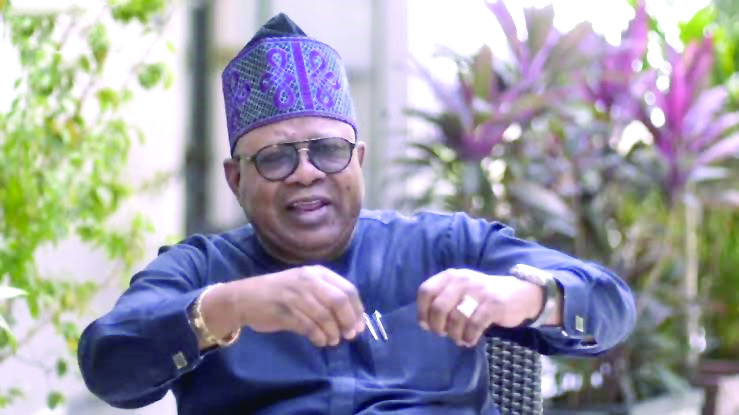
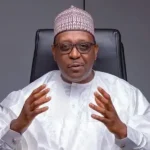

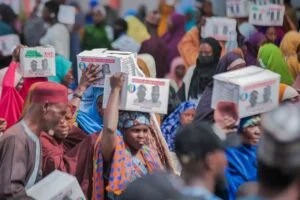
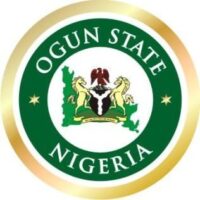








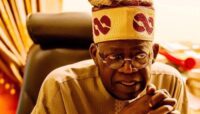

Leave a comment